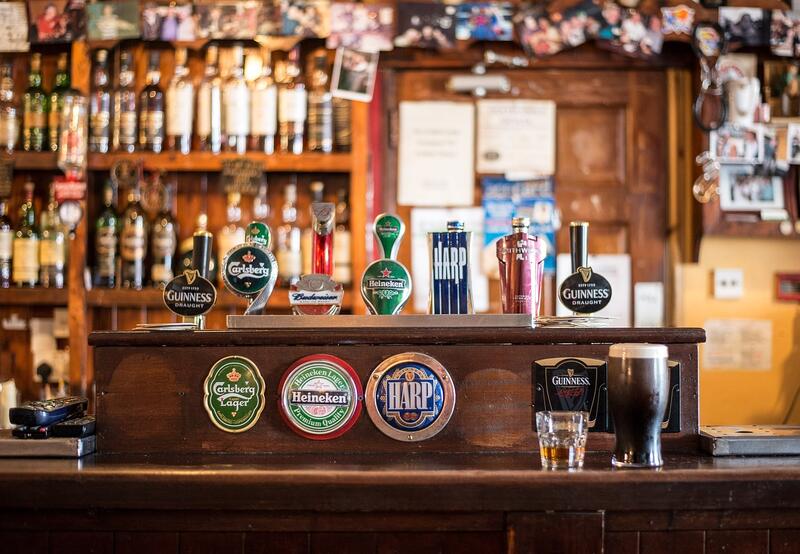Strategies for Carbon Reduction in Manufacture of beer: Decarbonization Approaches
This article explores various strategies for reducing carbon emissions in the beer manufacturing process, highlighting decarbonization approaches to mitigate environmental impact.

The manufacture of beer is a significant contributor to carbon emissions globally. The industry has been responsible for a significant amount of greenhouse gas emissions, which have contributed to climate change. Decarbonisation in the manufacture of beer is important as it helps to reduce the carbon footprint of the industry. This article will discuss the importance of decarbonisation in the manufacture of beer, the main sources of carbon emissions in the industry, how carbon emissions can be reduced, the challenges facing decarbonisation, and the implications of decarbonisation for the industry.
What is Decarbonisation in the "Manufacture of Beer" Sector and Why is it Important?
Decarbonisation is the process of reducing carbon emissions from various sources, including the manufacture of beer. The beer industry is one of the largest contributors to carbon emissions globally, and decarbonisation is essential to reduce the carbon footprint of the industry. The importance of decarbonisation in the manufacture of beer is to reduce the impact of the industry on the environment, reduce greenhouse gas emissions, and mitigate climate change.
The Main Sources of Carbon Emissions in the "Manufacture of Beer" Sector
The main sources of carbon emissions in the manufacture of beer include the production of raw materials, transportation, energy consumption, and waste management. The production of raw materials such as barley and hops requires significant amounts of energy, fertilisers, and water, which contribute to carbon emissions. Transportation of raw materials and finished products also contributes to carbon emissions. Energy consumption during the brewing process, including heating, cooling, and lighting, is another significant source of carbon emissions. Finally, waste management, including the disposal of wastewater and solid waste, also contributes to carbon emissions.
How Can We Reduce Carbon Emissions in the "Manufacture of Beer" Sector?
Several strategies can be employed to reduce carbon emissions in the manufacture of beer. These include:
- Sustainable sourcing of raw materials: The use of sustainable raw materials, such as organic barley and hops, can reduce the carbon footprint of the industry. Sustainable sourcing also reduces the use of fertilisers and pesticides, which contribute to carbon emissions.
- Energy efficiency: The use of energy-efficient equipment, such as boilers and refrigeration systems, can reduce energy consumption and carbon emissions.
- Renewable energy: The use of renewable energy, such as solar and wind power, can reduce the carbon footprint of the industry.
- Waste reduction: The reduction of waste through recycling and reuse can reduce carbon emissions.
- Transportation: The use of electric or hybrid vehicles for transportation can reduce carbon emissions.
What are the Challenges Facing Decarbonisation in the "Manufacture of Beer" Sector?
The challenges facing decarbonisation in the manufacture of beer include:
- Cost: The implementation of decarbonisation strategies can be expensive, and the cost may be passed on to consumers.
- Technology: The use of new technologies, such as renewable energy, may require significant investment and expertise.
- Supply chain: The supply chain for raw materials and transportation may not be fully developed for sustainable sourcing and transportation.
- Regulations: Regulations may not be in place to support decarbonisation efforts, making it difficult for companies to implement changes.
- Consumer behaviour: Consumer behaviour may not support the use of sustainable products or transportation, making it difficult for companies to implement changes.
What are the Implications of Decarbonisation for "Manufacture of Beer" Sector?
The implications of decarbonisation for the manufacture of beer sector are significant. Decarbonisation can lead to reduced carbon emissions, reduced environmental impact, and improved sustainability. It can also lead to increased efficiency, reduced costs, and improved brand reputation. However, decarbonisation may also lead to increased costs for companies, which may be passed on to consumers. The implementation of decarbonisation strategies may also require significant investment and expertise, which may be a challenge for smaller companies.
Conclusion
Decarbonisation in the manufacture of beer is essential to reduce the carbon footprint of the industry and mitigate climate change. The main sources of carbon emissions in the industry include the production of raw materials, transportation, energy consumption, and waste management. Strategies to reduce carbon emissions include sustainable sourcing of raw materials, energy efficiency, renewable energy, waste reduction, and transportation. The challenges facing decarbonisation in the industry include cost, technology, supply chain, regulations, and consumer behaviour. The implications of decarbonisation for the industry include reduced carbon emissions, improved sustainability, increased efficiency, reduced costs, and improved brand reputation.